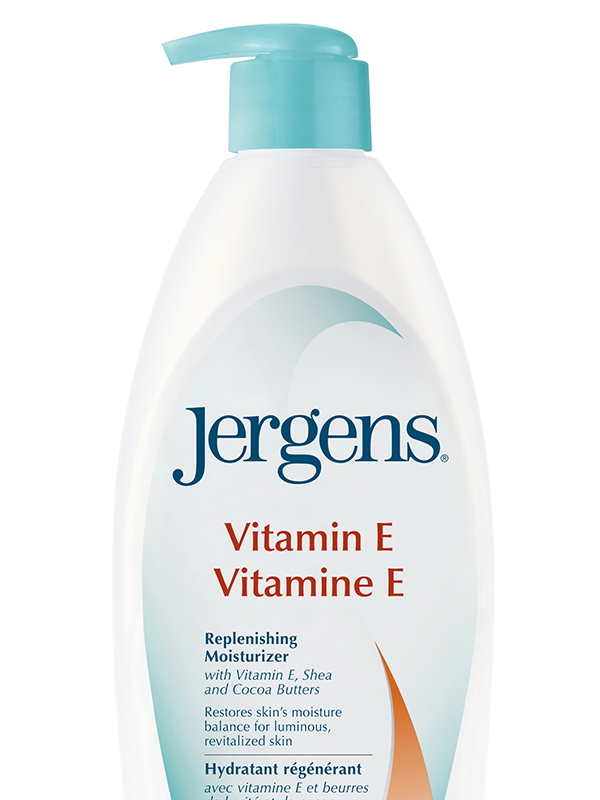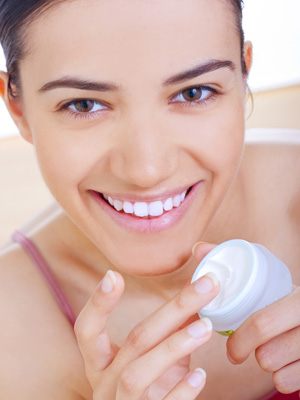Writer Adriana Ermter’s love affair with the bottle is put to the test when she’s forbidden, yes you read that correctly, forbidden to spritz…
I once had to give up perfume for my workplace. And, no, it wasn’t a joke.
I’d heard of offices like this before, but I’d never taken them seriously. I mean come on, who doesn’t wear perfume to work? Turns out: a whole bunch of people. I on the other hand, have always spritzed with a heavy hand. Today was no different. I left a heady trail of lush flowers lingering in the elevator and in the hallways on my first day on the job.
“You smell good,” the HR woman said to me. We’d just greeted each other at the reception desk and now, were on our way to meet my new team.
“Thank you,” I answered, smiling. It was all I could do to refrain from babbling about the exotic tuberose, gardenia and frangipani blossoms Dolce & Gabbana had lovingly swirled together to create the slightly drunken, sultry scent I was wearing, Velvet Desire. After all, I was keen to make a good, professional impression.
“We’re actually a fragrance-free organization, so…” said the HR woman, nodding her head from side to side.
What? Oh. Crap.
I’ve been spritzing perfume since I was nine years old and first coated my wrists with a wet, powdery-smelling layer of Love’s Baby Soft. My love affair started three years earlier with a plastic Avon brooch that opened to reveal a circle of waxy fragrance inside. Now, with more than a decade of writing and editing beauty stories for glossy women’s magazines under my skinny Marni belt, my perfume obsession and collection came second only to Imelda Marcos’ shoe rack. But I’d said yes to this job. And based on the firm gaze the HR woman was fixing upon me, the only thing I could to do was put the bottle down and convince myself that not applying a daily dousing of fragrance was no big deal.
Except that it was.
For the first two weeks I embraced abstinence, but the novelty of not spritzing wore off during week three. There wasn’t one identifiable breaking point, I just couldn’t seem to shake the nagging sensation of feeling naked when, every morning I’d leave my apartment without a drop of Chloe, Chloe’s sweet floral eau; Maison Francis Kurkdjian, APOM’s Pantene shampoo-like smell; or Bond No. 9, Eau de New York’s sharp, gritty notes wafting off my body. Picking a scent to match my outfit wasn’t just a ritual it defined me and determined my mood. This pale expanse of nothingness required the same Herculean effort as the time I’d sworn off carbs and chocolate in attempt to lose 10 pounds, minus the feel-good, pay-off of flat abs and a tight tush. I craved smoky patchouli, dewy petals and warm wood. Naturally, I started binging.
Each night, before I’d crawl under the sheets on my bed I’d apply a heavy misting of whatever perfume was in closest reach. My weekends were divided between heavy spiced ouds, pungent ’80s favourites and dusty earthy elixirs. I fogged out friends at Sunday brunch, was complained about by a fellow gym goer and gave Trixie-the-cat more than one late night sneeze-attack. No one wanted to sit next to me at the movies, but I didn’t care. My new routine worked, at least for a while, but then my alarm clock would go off on Monday morning and I’d be back to smelling like, well, just me.
Five days a week from nine to five, I felt ugly and soulless. Despite doing what I love, I became resentful of my job and picked fights with anyone who had the freedom to wear perfume wherever, whenever they liked. I was miserable, so I blamed the ’90s, when political players first labeled the fragrance adverse with “multiple chemical disorder,” kick-starting the trend to designate certain public areas, like hospitals and clinics as scent-restricted zones. Sure, I know there are people truly afflicted with respiratory issues, but for the most part having a fragrance allergy was, in my opinion, an aversion that could be chalked up to the disgruntled not liking a particular scent or those who were unappreciative of a co-worker’s cloud of Shalimar preceding her long before she’d entered the room. I too am not immune to gagging over white musk, sugary fruits or Dior’s headache-inducing Poison, but I’d never, ever tell someone they couldn’t spritz.
On week six, I rebelled. Because my workplace was super strict about their non-fragrance-wearing rule, I deduced that the lighter the perfume the harder it would be to detect. I began investigating aquatic- and shower fresh-smelling scents, which I hadn’t gravitated to before. My theory had always been that there’s no point in wearing perfume with little discernable scent. Now, I coveted Serge Luten’s L’Eau, Chanel’s Les Exclusifs No.28 La Pausa and Nina Ricci’s L’Air du Temps’ clean aesthetic.
I sprayed them sparingly: the tiniest spritz on my throat, beneath my chin or blotted into my hairline and yes, even on my eyebrows. Sometimes, I soaked a cotton ball with Balenciaga’s L’Essence and stuffed it inside my silver, oval locket. The crisp, violet-infused, garden-green scent would slowly seep out of my necklace allowing me to inhale it with deep, gulping breaths throughout the day. For the next several months I had my fix; my work life perked up.
Then I got caught.
It was a Wednesday. I was in a meeting with a colleague and I was hot. The room we were sitting in was tiny, window-less and had no air circulation, so I removed my cardigan. Big mistake. The second my arms were bared I could smell the delightful combination of zesty lemon with rose and cedar wood oozing from my pores. I tried to ignore it, but after a mere three minutes I could practically see my colleague’s words floating in the air above me before she’d even spoken them.
“Do you smell perfume?” she asked.
I pretended to sniff the air before bold-faced lying.
“No,” I answered.
Employees who broke the no-fragrance rule were written up—the information potentially used against them during their annual review. Plus, gossip ran rampant and I didn’t want the stigma attached to me. More importantly, I didn’t want to jeopardize my upcoming raise.
“Who was in this room before us?” the woman asked. “Are you sure you don’t smell anything?”
Lying again, I suggested my hand cream was the culprit, holding out my hand for her to sniff. She inhaled and nodded in agreement. Offering to wash it off, I high-tailed it to the bathroom and hid. Crisis averted.
A couple of weeks later, I was called out again, this time in the elevator by one of the VPs. Silently cursing my three-inch heels that prevented me from taking the stairs, I attributed the scent to my still damp ponytail. My rationale was plausible, but barely. Once again, I got away with wearing the contraband product. But my charade was wearing thin.
Finally, after two years of sneaking around I caved, admitted defeat and left my job. I was tired of pretending to be someone I’m not. It just wasn’t worth it. Spritzing perfume is who I am and I desperately needed to feel and act like myself, again. And let’s face it, with close to 500 bottles launching each year, fragrance-free will never be me. Admittedly, I still drench myself in the latest eau. My friends continue to avoid being up close and personal when we’re in close quarters, but I’m happy. And I smell great.













the most important thing was you talking about WHY that company has this type of rules; where did you work?; you were the only person complaining about this?; what was the opinion about this issue?